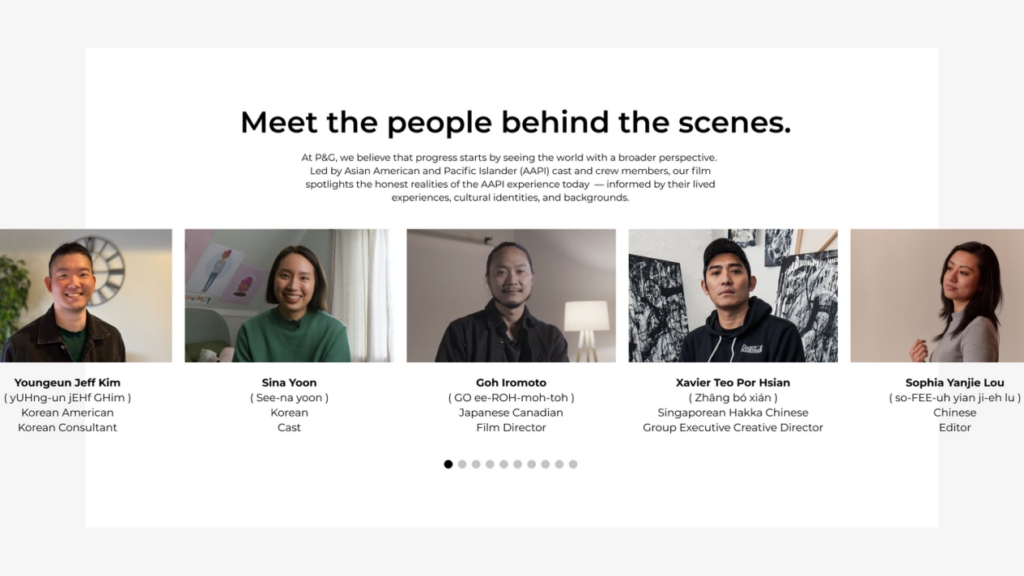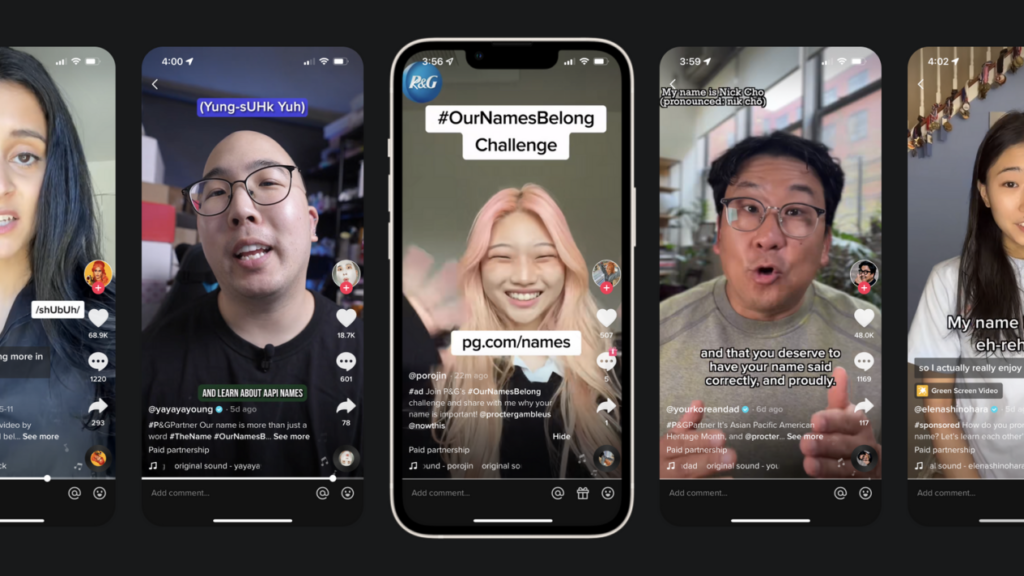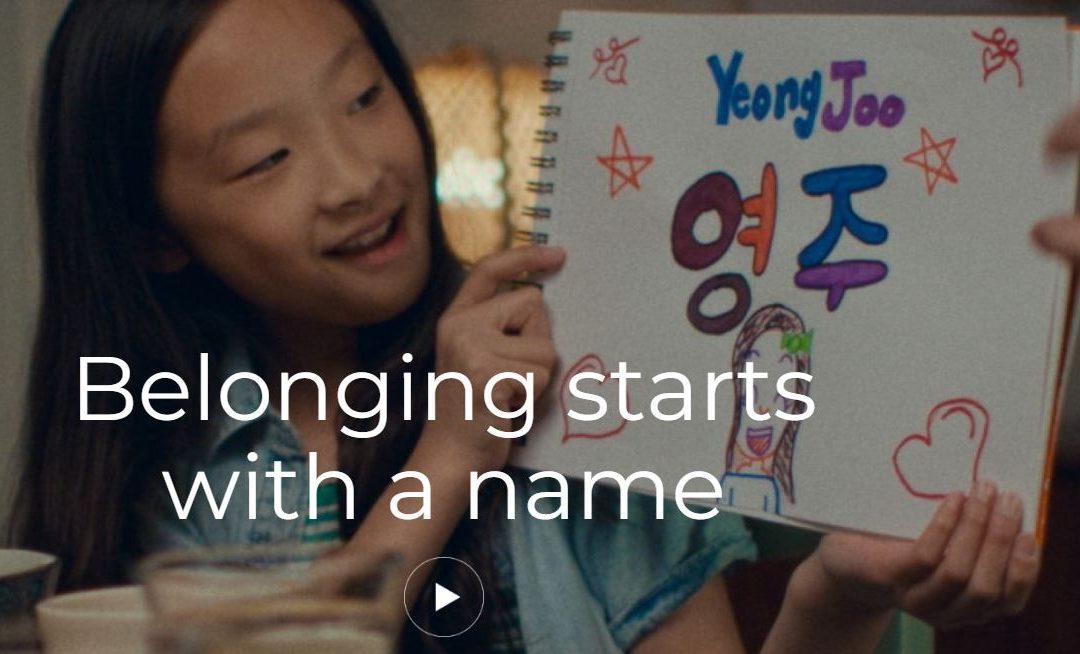By Brittany Chiu
I have a love-hate relationship with my name—Brittany. My father said that he liked the name for what it is, but I always suspected that it was because my older cousin is named Tiffany. I don’t think there is any name out there in the world more Anglicized than Brittany, and I don’t believe that there are a lot of AAPIs who have that name, especially in the Midwest where I am from. Regardless, as a minority, there are some perks that come with an Anglicized name.
- You never have to worry about name mispronunciations.
- You never have to worry about Starbucks writing some alien name on your coffee cup. (Thank you Mita Mallick for bringing this up!)
- You never have to worry about “whitening” your resume.
I’m a 2nd generation Chinese-American, and I’ve always been proud of my heritage so I used to wonder, “I have a Chinese name, so why wasn’t it my legal name? It’s not hard to pronounce (mAy-yEE).” I came across a recent video in a LinkedIn post by Elizabeth Leiba, and that video is a conversation between Uzoamaka Nwanneka Aduba and her mother about her name. It goes:
“Mommy, can I ask you a question?”
“She said, ‘Ehh…’?”
“I said, ‘Can you call me Zoe?’
“And she stopped… And gave that mother look that only mothers know and have and said, ‘Why?’”
“And I said, ‘Because no one can say Uzoamaka.’”
“And she looked at me and she said, ‘If they can learn to say Tchaikovsky and Michelangelo and Dostoevsky, then they can learn to say Uzoamaka.’”
As minorities, we need to ask ourselves, “What is an American name?” Do we associate American with Anglo-Saxon or something more? Have we ever stopped to think whether we are proud of our names or not? Even though my first name is Anglicized, my last name is not. About half of people can pronounce it correctly. If there is a butchered pronunciation, I usually let it slide. How many of you have done this? Or have you corrected the mispronunciation each time?
A few months ago, Procter and Gamble came out with a celebratory video, created by R/GA, in honor of AAPI Heritage Month called “The Name”. It chronicles the journey of 2nd generation Korean-American girl named Yeong Joo from birth to her alienation at school and finally to social acceptance through correct pronunciation of her name by others. Yeong Joo, according to her mother, stands for “strong and resilient”. Her mother tells her, “Yeong Joo, you are perfect. But I know it won’t always feel like that. Your name will make you feel different. Like they don’t want to get to know you. But I promise there will be those who try.”

Say My Name
Source: P&G “The Name”
Name is not just a name but a cornerstone of our identity. For minorities, names carry even deeper significance and history. Name gives us a greater sense of belonging to our communities and is emblematic of the United States as a melting pot. Whether intentional or unintentional, mispronunciations can lead to misidentification and social barriers. A pulse survey conducted by P&G that gauged sentiment around “The Name” founded that 78% of Americans did not see “Yeong Joo Park” as a possible American name. 83% of respondents felt that names held importance and meaning to their heritage, identity, or connection to family. Additionally, more than half of Americans have experienced mispronunciation of their names. This is the reality that minorities deal with on a daily basis. No one wants to feel like an outsider. More people should take the effort to learn, say properly, and respect someone’s name as it encourages empathy, visibility, and connection.
The team who was behind the creatives is R/GA’s all-AAPI team, Asian Voices Culture Collective. R/GA is an innovation consultancy and digital design and advertising agency, headquartered in New York City, with global offices in Austin, Los Angeles, San Francisco, Portland, London, United Kingdom, Berlin, São Paulo, Buenos Aires, Singapore, Shanghai, Sydney and Tokyo. According to them, “While the all-AAPI team behind the effort was a laudable accomplishment which was crucial to its success, it shouldn’t have been so difficult to bring such a team together—highlighting a lack of progress in AAPI representation and inclusion across the industry.” The AAPI consumer market is the fastest-growing consumer segment, and it has the collective buying power of 1 trillion USD according to Adage. Yet, brands have not made enough effort to understand, tap into this market, and add value. DEI has been top of mind for most organizations nowadays, but it appears to belong on a checklist rather than serve as a core competency.

Meet the People behind the senses
Source: P&G “The Name”
When it comes to reaching AAPI consumers and speaking to their hearts, building an authentic AAPI ERG or collaborating with AAPI media buy are recommended. In the case of “The Name”, R/GA delivered a breakthrough message that resonates with AAPI and showcased the importance of DEI perspectives in a marketing campaign. For Procter and Gamble, it became the first consumer goods corporation to speak and honor the AAPI narrative. This campaign was then later expanded to social media (#OurNamesBelong) where wider audiences were invited to share their names and how to pronounce them correctly.

API
Source: P&G “The Name”
So, how do you pronounce your name?

